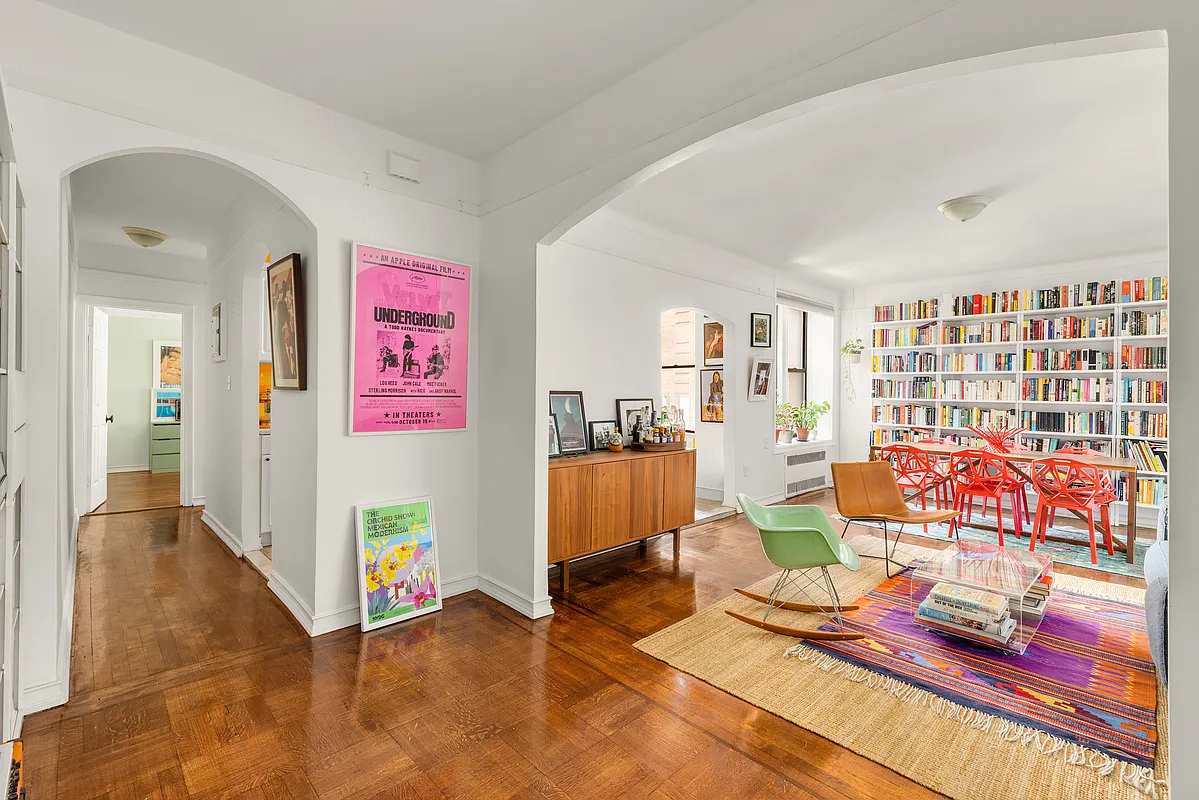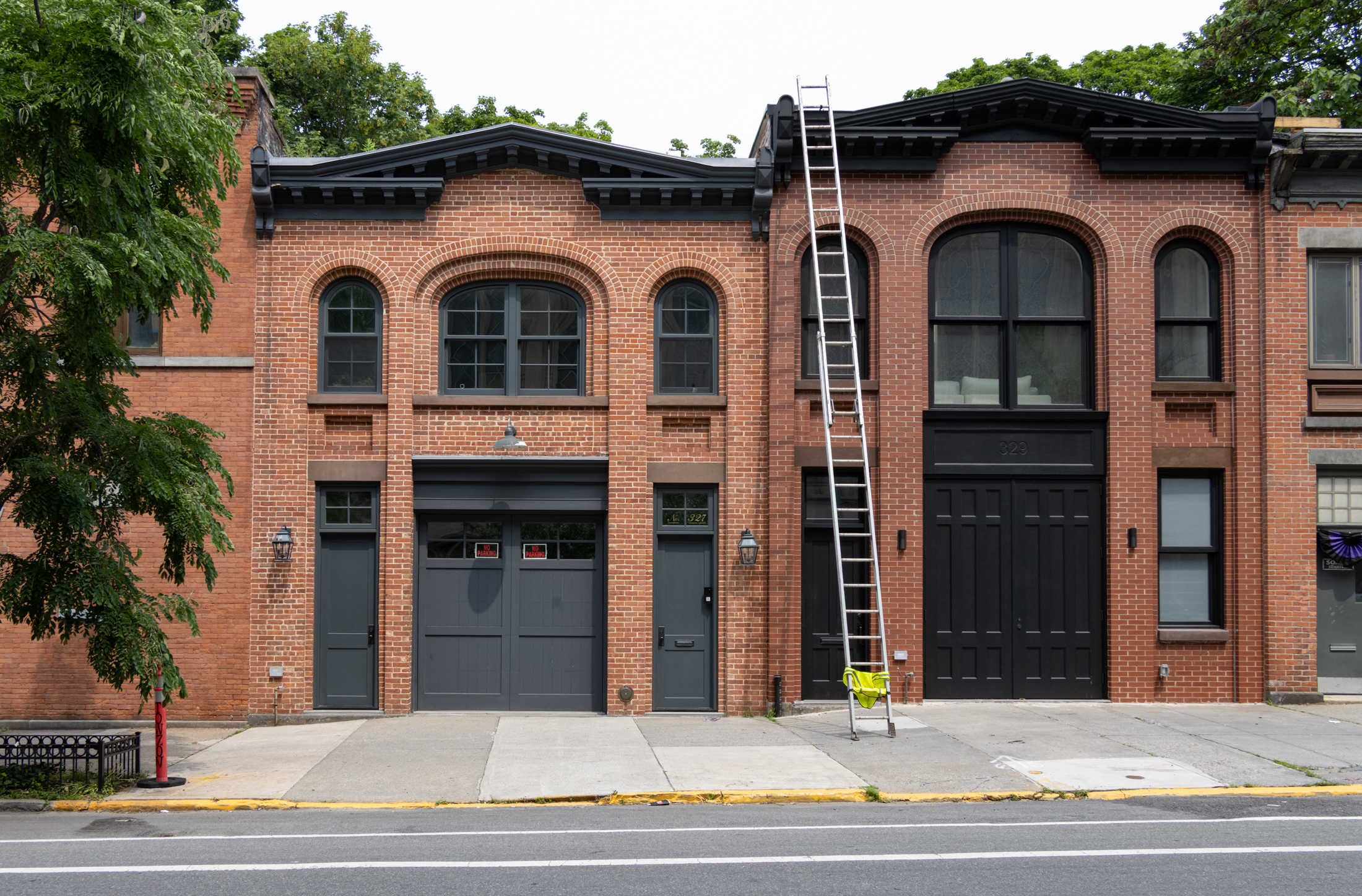For Fort Greene Chef and Author Carla Lalli Music, Food Creates Family
Lalli Music spoke to Brownstoner about the ways cooking has changed during the pandemic, being inspired by the community around her, and why hosts should relax when entertaining.

Photos by Andrea Gentl and Martin Hyers
“Food is a really important part of our family,” says the Fort Greene chef and cookbook author Carla Lalli Music. Before the pandemic, Lalli Music, her husband, and children would have to squeeze in time for meals between daily activities and responsibilities. It was something that always nagged at her. When the pandemic forced her family inside, like so many others, she realized she could not take it for granted. “This was one thing that felt really, really special,” she says. “There was a lot to be grateful for, but this was one of them.”
That special feeling can be felt in Lalli Music’s new cookbook, “That Sounds So Good,” published by Clarkson Potter, an imprint of Random House. The title comes from a phrase repeated by her father, the journalist and author Frank Lilli, when he approves of something they are planning for a family meal. “But it really came out of realizing that the most valuable and rewarding part of helping people cook is what it does in their lives,” she adds. “That’s obviously where my love of food came from and why I cook. It all started with that feeling.”
Aimed at both the beginner home chef and the more experienced kitchen dwellers, complete with alternate ingredient lists and encouragement to improvise, “That Sounds So Good” is brimming with energy and fresh ideas. Lalli Music, a former editor at Bon Appétit and host of their popular web show “Back to Back Chef” (and current host of shows via Patreon and Instagram Live), spoke to Brownstoner about the ways cooking has changed during the pandemic, being inspired by the community around her, and why hosts should relax when entertaining.
Was it difficult to put this book together during the pandemic?
I wrote my first book (“Where Cooking Begins,” published in 2019) when I still had a full time job. The dream for the second book was like, I was going to be working from home, I was going to have this flexible schedule, I was going to be able to really focus on the recipe development and the writing. I had like six weeks of that, and then we were in quarantine. So I was at home and able to focus and have very few other distractions, except for the fact that everyone who I live with was home all day. The kitchen was also a place where there were three meals a day needing to be made. We did eat a lot of the recipes that I worked on for development for dinner. And that was great. A benefit was that I had sketched out the table of contents before everything happened, so I kind of had a roadmap and I knew what I wanted to work on. Cooking all those meals at home made the book so much better because I wasn’t in test kitchen mode and I wasn’t in just being creative for creative’s sake mode. I was really cooking so much and very aware of how long meals take to prepare, clean up, the ease of acquiring ingredients—it was just a very good way to get into a hardcore home-cook mindset.
One of the things I appreciate about “That Sounds So Good” is that it’s aimed at both amatuer and more experienced cooks, and tries to bridge the divide.
Yeah, I think that’s all summed up in the “Spin It” sections of the book, which was part of my first book too, and really came out of recognizing that I don’t make recipes the same way twice. For beginner cooks, it is a way of saying, if you don’t have something, or you have a variation on something, go forward with the recipe. I think that beginner cooks get really freaked out if they’re missing one ingredient, and think not having it is going to ruin the dish, or substituting something else might not work. So I really want to give people freedom to not worry about that. And during the pandemic, some stuff just wasn’t available so you had to kind of be flexible.
Your family’s a big part of the book (your son Cosmo even contributes some writing). Was that always part of the plan or due to the unusual circumstances of 2020?
It was both planned and amplified by the wacky year. The first book was very focused on technique and the basic cooking foundations that have served me well. And for this book, I wanted it to be more personal, as a way of differentiating it from the first book. Sometimes cooking’s a solitary pleasure—pasta night by yourself when everybody else has plans. But most of the time, it’s really an expression of happiness, and family and togetherness.
How has Fort Greene, where you live, inspired you and your cooking?
Especially in quarantine, the way that local businesses transformed themselves to stay open and be of service to their community was truly amazing to me. Everybody at the beginning was freaking out about shortages and hoarding toilet paper, all of that stuff. Ordering online became pretty unreliable. But actually going out and picking stuff up in person, there was no problem—the stores were completely stocked. I actually started procuring stuff more by making little trips. Places like Mr. Mango, Mr. Coco, Greene-Ville Garden, Gnarly Vines, Leon & Son. It was kind of like one of the only reasons to leave the house, you know?
What kind of advice do you have for people who might be entertaining for the first time since the pandemic?
I think for a lot of people just being together is sort of the prize after all this time. And my approach to cooking for a lot of people is to not overextend yourself and not overdo it so that you can enjoy the experience of the cooking but also kind of be in a place to enjoy sitting down with people. In the book, I really tried to think about keeping active cooking time to 30 or 45 minutes, even if the total cooking time could be four hours for the grill-roasted turkey breast or there’s an oven version of pork and beans. So I would not overcomplicate it and let people bring stuff. My mom doesn’t really like it when other people want to bring parts of a meal because she feels like, as a hostess, that’s what she’s supposed to do for her guests. But at this point if someone says, “Can I bring a side or the dessert?” I’m like, “Yeah!” It takes work away from me and it just makes it easier. So unless you really, really love project cooking, just make it about being together.
Editor’s note: A version of this story appeared in the Fall/Holiday 2021/22 issue of Brownstoner magazine.
Related Stories
- Brooklyn Delhi Founder Chitra Agrawal Finds Community Through Food
- Chitra Agrawal of Brooklyn Dehli Shares a Recipe for Khara Huggi or Pongal
- Tiki Expert Shannon Mustipher Reimagines the Cocktail
Email tips@brownstoner.com with further comments, questions or tips. Follow Brownstoner on Twitter and Instagram, and like us on Facebook.





What's Your Take? Leave a Comment